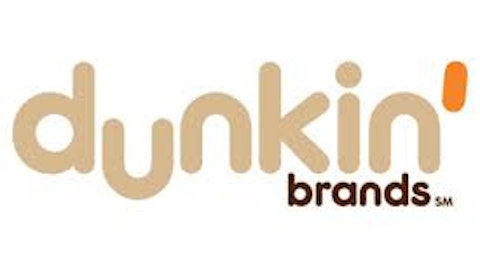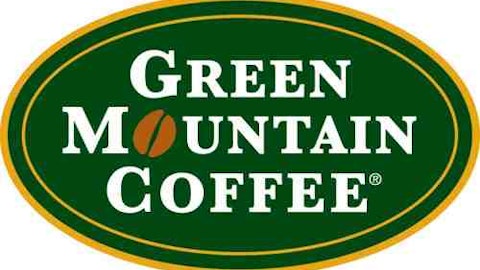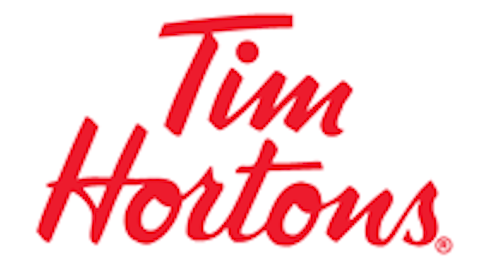Caffeine addicts rejoice! Coffee prices are in free fall. For savvy investors this presents a potential opportunity.

Falling prices
In 2011 poor weather and a fungus outbreak drove the price of Arabica coffee, the preference of java connoisseurs for its richer flavor, above $3.00/lb. Pundits warned of the looming coffee shortage.
Today, Arabica prices are approaching four year lows down 60% from their peak.
The iPath Dow Jones-UBS Coffee Subindex Total Return ETN , which tracks coffee futures prices at the New York Mercantile Exchange, is down 27% over the past year.
Even Robusta prices, a lower quality brand, are also falling due to good harvests in Vietnam and Indonesian.
According to the London NYSE Liffee exchange, speculators have more than tripled bearish bets against Robusta prices. Net-short positions, or wagers that prices will fall, totaled 7,096 futures and options contracts during the period ended June 4. That compares to 2,029 contracts only a week earlier

Reasons
Several reasons have been given for this decline.
Bumper crop: Record crop yields in Brazil, the world’s largest Arabica coffee producer, has swelled inventories. According to Volcafe, global coffee production is expected to hit 134.3 million bags this year, much higher than the 132 million bags originally projected.

Slowing demand: Global coffee consumption is only expected to increase 1.1% this year. That’s the slowest pace of growth in decades. In addition, dominate players like Nestle anticipate prices to continue to fall and are reluctant to step in with big purchases.
Structure: Unlike core or wheat where seeds are set down every season, coffee plants can return harvests for a least two years. This means it’s easier to raise production when prices are rising than it is to cut production when prices are falling.
Discipline: Most coffee growers are small farmers who have no choice but to sell their crop regardless of the price. Some farmers in Colombia and Ethiopia have actually raised production to offset falling prices.
Subsidies: To support struggling farmers, many governments are subsidizing production to help them ride out the volatility.
Equity implications
So what does this supply glut mean for equity investors? For some coffee distributors and distributors, significantly higher gross margins.
Starbucks Corporation (NASDAQ:SBUX) has yet to fully benefit from falling coffee prices because the company has hedged half of its coffee needs until 2014.
In 2012, Starbucks Corporation (NASDAQ:SBUX) paid an average price of $2.69/lb for coffee. That’s expected to fall to $2.04/lb by 2014. Based on the company’s estimates, that could add more than $200 million to the company’s bottom line.
But don’t expect Starbucks Corporation (NASDAQ:SBUX) to discount your favorite Hazelnut Macchiato. Because of little direct competition, Starbucks isn’t likely to be reduce prices in its cafes. It would be difficult for the company to re-raise prices later if commodity costs rebound.
However, Starbucks Corporation (NASDAQ:SBUX) recently did lower the price of its bagged coffee by 10% to respond to price cuts from rivals.
In contrast, rival Dunkin Brands Group Inc (NASDAQ:DNKN) isn’t expected to benefit from falling commodity prices.
It’s a fundamentally different business model. Because most of the company’s U.S. locations are franchised and store owners are responsible for ingredient purchases, Dunkin Brands Group Inc (NASDAQ:DNKN) is insulated from volatile commodity prices.
However, if franchisees increase their marketing efforts in response to raw cost savings, that could translate into higher royalties for Dunkin Brands Group Inc (NASDAQ:DNKN) investors.
Foolish bottom line
So will coffee prices continue to fall? Not likely – according to a report in the Wall Street Journal, prices are approaching the cost of production in Brazil. Many farmers are converting crop lands to cattle pasture, nixing tree planting, and rationing fertilizer use. That could put a floor underneath coffee prices.
Robert Baillieul has no position in any stocks mentioned. The Motley Fool recommends Starbucks. The Motley Fool owns shares of Starbucks.
The article How to Profit From the Coffee Glut originally appeared on Fool.com.
Copyright © 1995 – 2013 The Motley Fool, LLC. All rights reserved. The Motley Fool has a disclosure policy.




